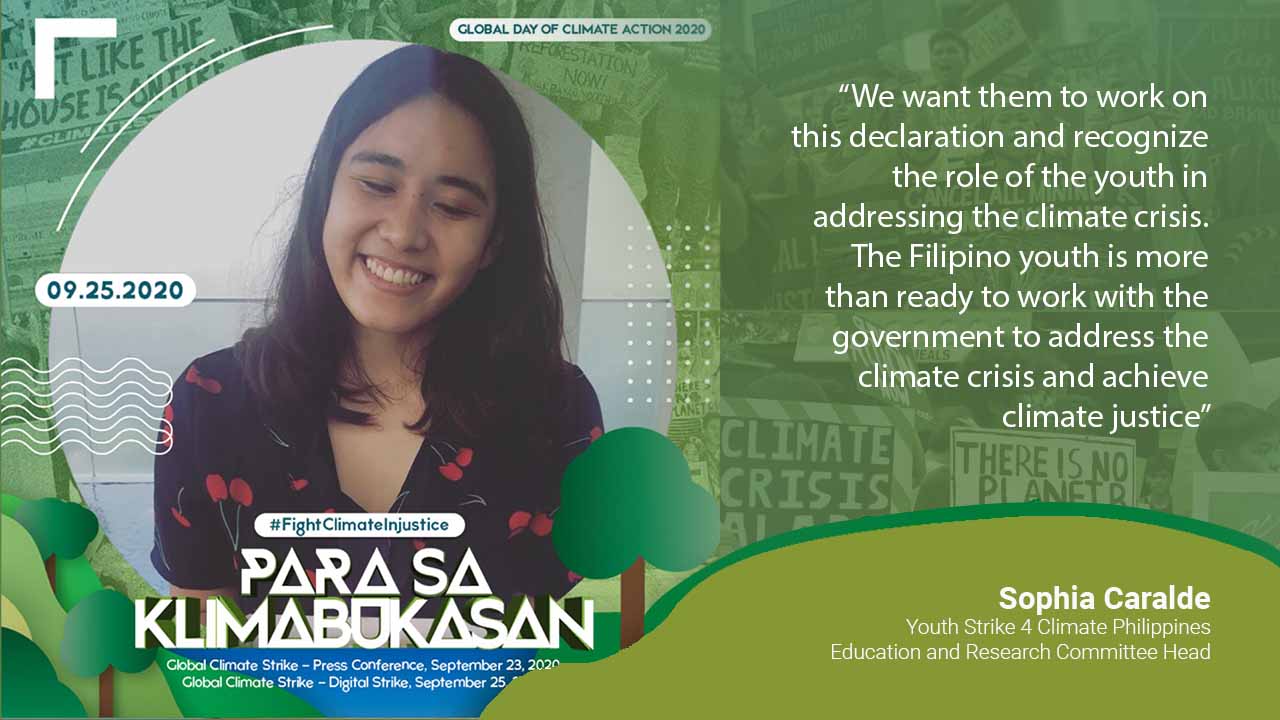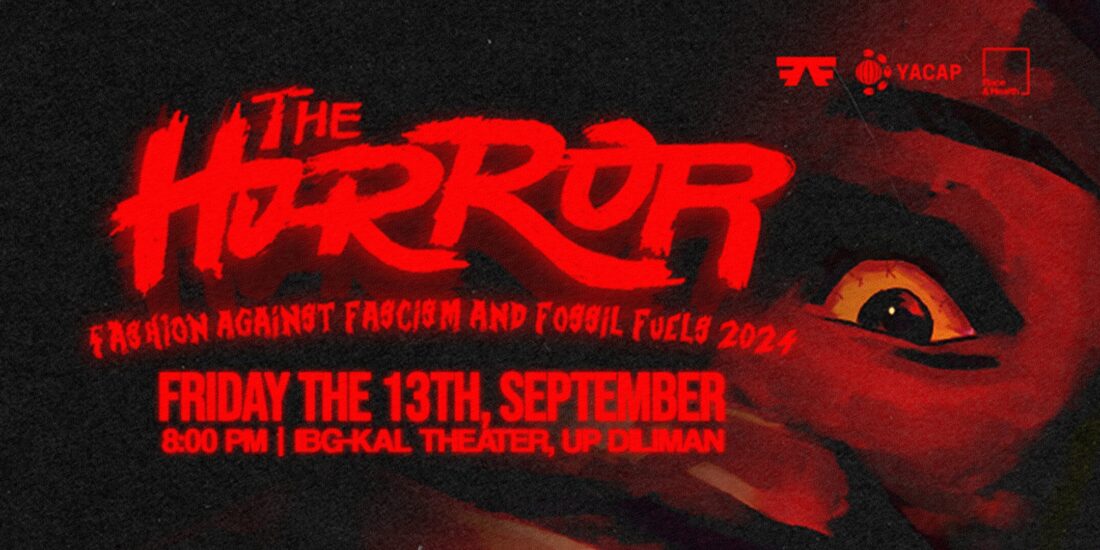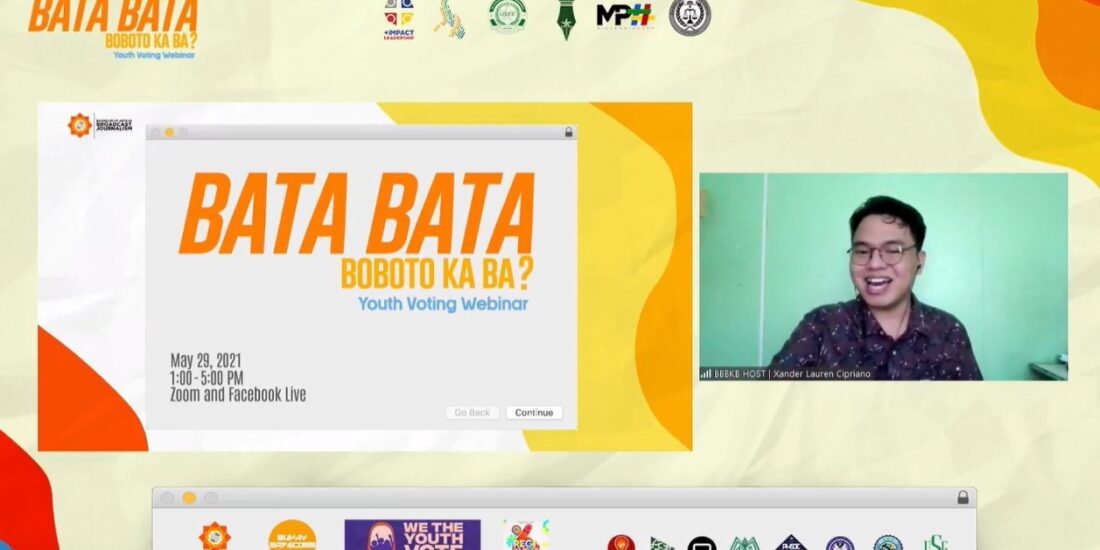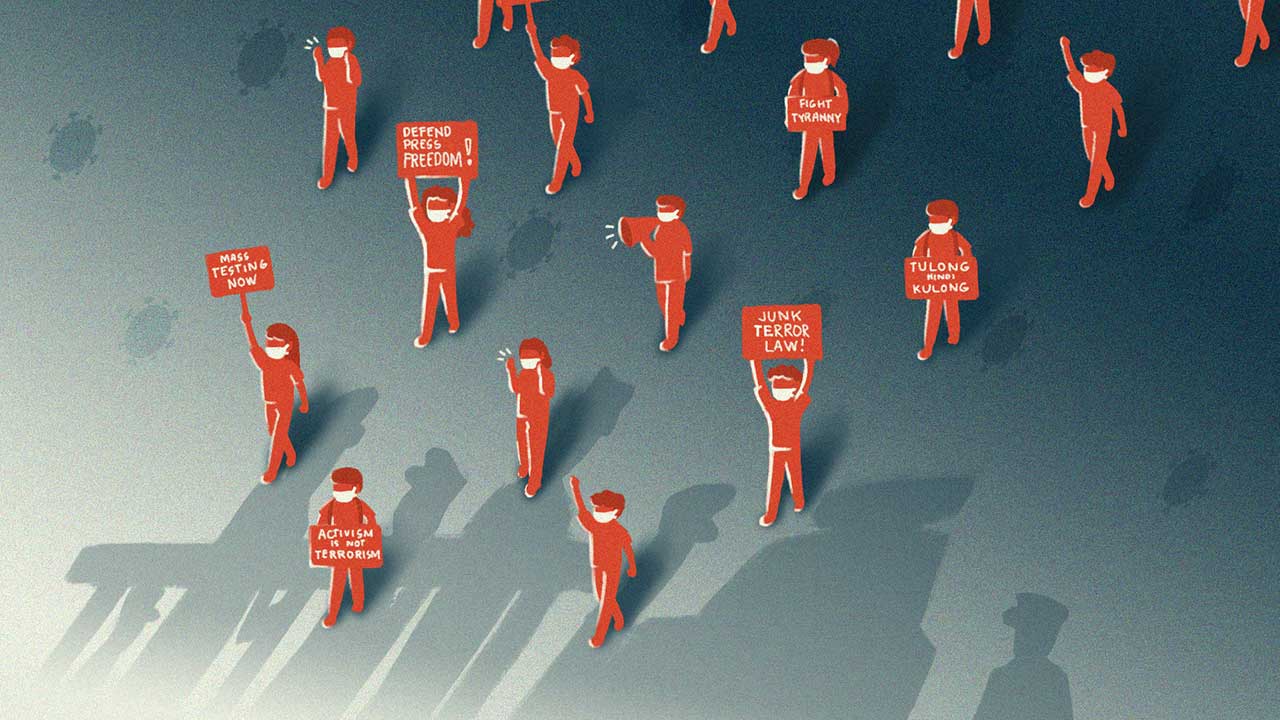Fighting for our future story
Talks about the climate crisis have been going on for years now. However, immediate and bold actions on addressing the crisis is a whole different story. This is why the youth demands attention from those in power through global climate strikes inspired by climate activist Greta Thunberg’s Fridays for Future movement. As environment defenders take the fight online, there’s no stopping their momentum against climate injustices in the Philippines.
Now more than ever, with the coronavirus disease 2019 (COVID-19) pandemic still at large, youth speakers, environment defenders, and climate organizations joined together for the Global Day of Climate Action 2020: Para Sa Klimabukasan on September 23 and 25, conducting a press conference and a digital strike aimed to uphold climate justice within the country.
On September 25, the Youth Strike 4 Climate Philippines (YS4C PH) launched the main event for National Youth Demands: Youth Declaration for Climate Justice with its theme “Klimabukasan,” a wordplay of the two words klima meaning the climate and kinabukasan meaning tomorrow or the future. The future of climate served as the heart of the advocacy they continue to fight for.
“We want them to work on this declaration and recognize the role of the youth in addressing the climate crisis. The Filipino youth is more than ready to work with the government to address the climate crisis and achieve climate justice,” said Youth Strike 4 Climate Philippines Education and Research Committee Head Sophia Caralde.
The state of climate justice in the Philippines
YS4C PH hosted the press conference National Youth Demands: Youth Declaration for Climate Justice, calling for bold actions of the government and corporations on September 23, two days before the main event. Environment advocates also detailed the demands to urgently address the climate crisis and injustices.
During the press conference, Association of Young Environmental Journalists (AYEJ) Representative Val Vestil stated that despite being heavily dependent on the environment, “it (Mindanao) is also the deadliest region in the Philippines for environmental defenders”.
Vestil listed evidences of the continuous oppression for environmental defenders in Mindanao which were:
- 90 percent of the 43 environmental defenders killings in 2019 were activists from Negros and Mindanao.
- At least 28 environmental-related killings during the Martial Law period on 2017-2019.
- More than a hundred environmental defenders from the 223 killings from 2001-2018 were from Mindanao.
- Around 900 Lumad people were forced to flee their lands and reside in evacuation centers at South Upi, Maguindanao.
On the other hand, Youth For Climate Hope (YCH) Representative Joshua Villalobos criticized big corporation projects that continue to destroy the environment, which brings harm to the communities, thus highlighting action on the current environmental threats in Visayas:
- Preservation for the Camotes islands by junking the House Bill No. 6900 that lifts its forest reserve declaration.
- Cancelation for the impending black sand mining at the coastlines of Negros that will cause displacement for fisherfolks, and ultimately kill the blue club industry.
- Stop the dolomite quarrying in Cebu that will be put in Manila Bay as research showed that corals within Barangay Pugalo’s water were destroyed due to heavy siltation caused by crushed dolomite spilling into the sea.
- Stop the planned incinerator projects in Dumaguete City.
Who is accountable?
More than the government and large companies, the event tackled how the real culprit behind the climate crisis is the system that allows it.
“Individual strengths can be transformed into an enormous power that will hold the climate injustice accountable,” Derek Cabe, an advocate for coal-free Bataan explained. He believed that the collective power of people demanding accountability is one way to address the climate crisis.
However, the fight for climate justice does not end there. It lies in the idea of transition and to fight for a new world, according to Population Commission (POPCOM) Commissioner Dexter Galban.
As the problem lies in the system itself and how it works, the youth’s call for system change is also a call to address the ongoing fight for climate justice. Instead of getting used to the new normal, why not push for a better normal post-pandemic?
Kisha Muana, the lead campaigner for the Better Normal Youth Agenda urged the government to include the youth in their plans for the country and reiterated five demands from the agenda:
- Upholding youth participation
- Prioritizing health
- Shifting to renewable energy
- Sustainable food systems, zero waste and green spaces
- People at the center of local and national policy-making
Meanwhile, Kabataan Partylist Representative Sarah Elago discussed her pending policy recommendations in the legislature, mentioning the bills and resolutions on climate action as well as the transition towards renewable energy.
In line with this, Engr. Ludwig Federigan concluded in the press conference that, “It’s high time to shift gears and embrace system change […] but changing lifestyle and paradigm shift requires a lot of personal effort.”
“Climate emergency is (sic) there and will always be there. […] At the end of the day, when we talk about climate change, it is a story of you and me,” Federigan added.
Why the youth demands change
Krishna Ariola of Youth for Climate Hope (Y4CH) pointed out the importance of youth participation in crucial discussions about the future, stating that “the youth sector itself is one of the biggest stakeholders in the impending climate crisis”.
Aside from the call for climate justice, co-founder of YS4C PH Jefferson Estela emphasized the threats brought by the Anti-Terrorism Law to activists and environmental defenders as they continue to fight for their cause.
“Despite our genuine desire to make the change we want, we have been red-tagged, harassed, and intimidated by security forces that are supposed to protect us whenever we forward our concerns,” Estela highlighted.
He also shared that YS4C PH was one of the 15 youth organizations who filed a petition to the Supreme Court last July 23, calling the Anti-Terrorism Law unconstitutional.
With the Filipino youth’s continuous fight for climate justice, Estela said that they will not be silenced. Instead, they will “build stronger grounds to forward the fight and continue the call for a just system”.
Moreover, Bryan Gonzales of Youth Declaration of Climate Justice for Human Rights and Environmental Defenders emphasized that the rights of the environment play a role in human rights. Recalling the experiences of the Dumagat people, an indigenous group in Sierra Madre threatened to be killed by the paramilitary in 2016, Gonzales stated that human rights are intertwined with the fight for the environment.
Gonzales shared that, “Kaya naman, lagi naming uulit-ulitin na hindi natin mailalayo ang laban ng envi-defenders sa laban ng mga human rights defenders dahil magkaugnay ang climate justice sa ating pakikibaka sa human rights.”
***
At the end of the day, fighting for a better future is not only for today’s youth. It is also for the sake of the generations to come. As the Commission on Human Rights Representative John Colin Yokingco stated, “What’s at stake is not just the current generation but the future generation and those who cannot defend themselves.”





